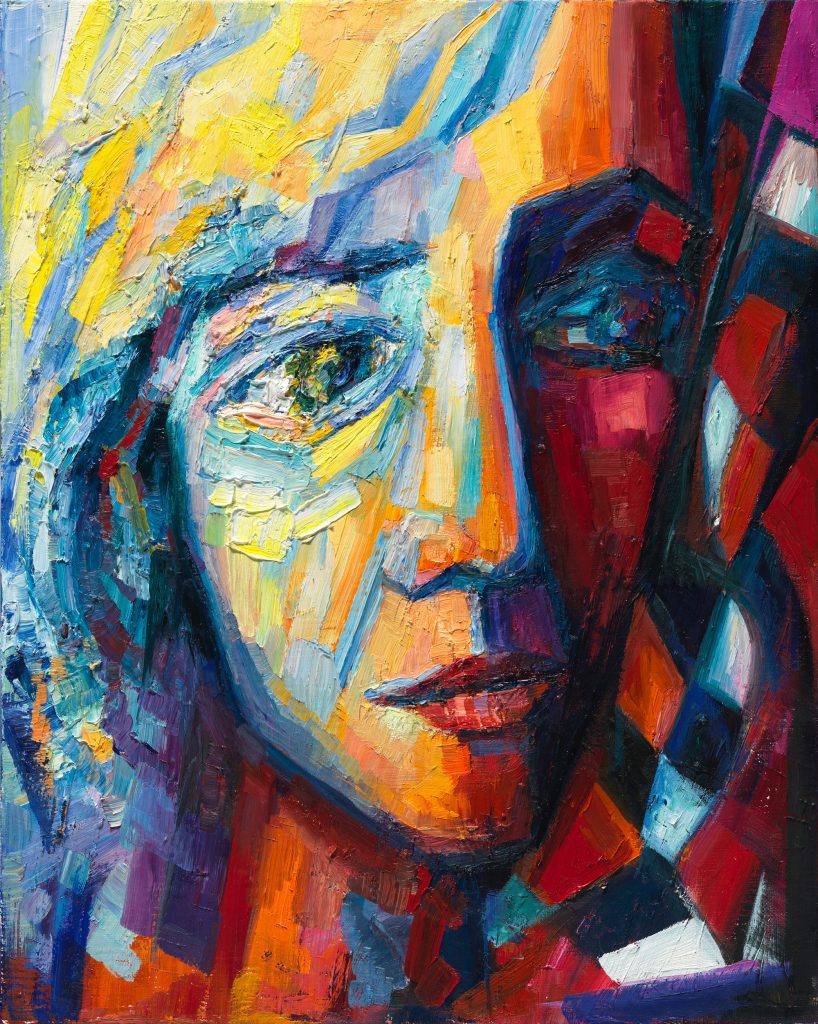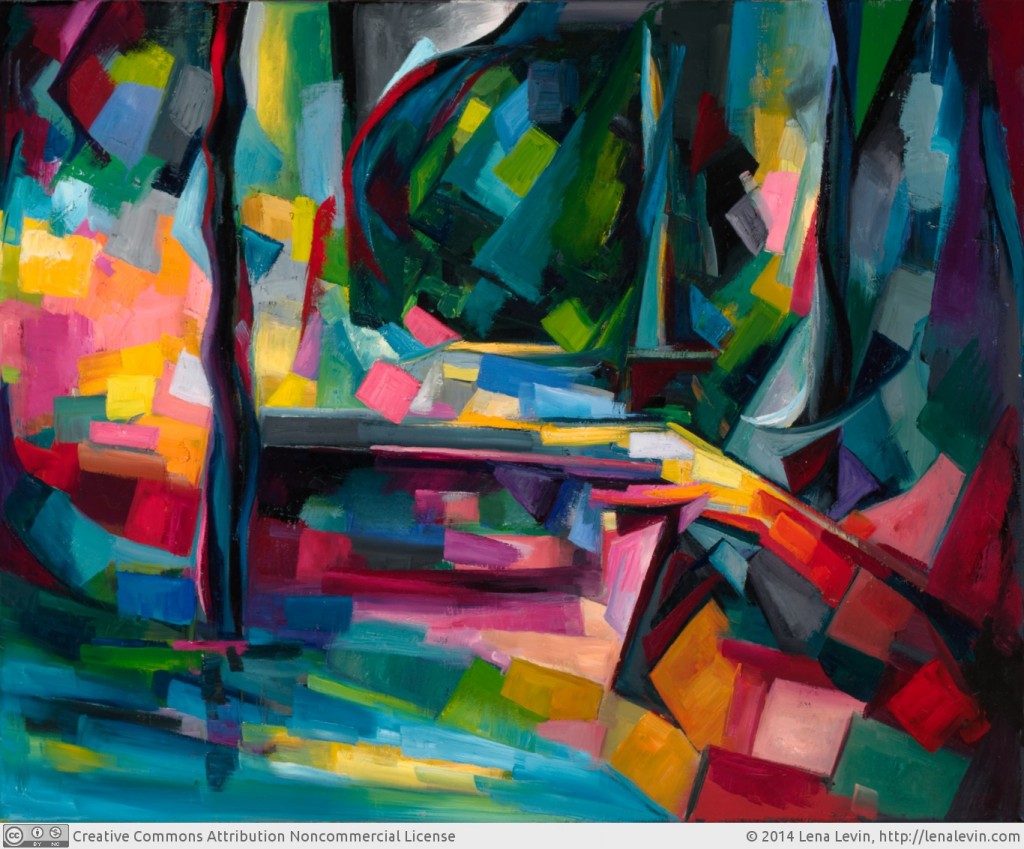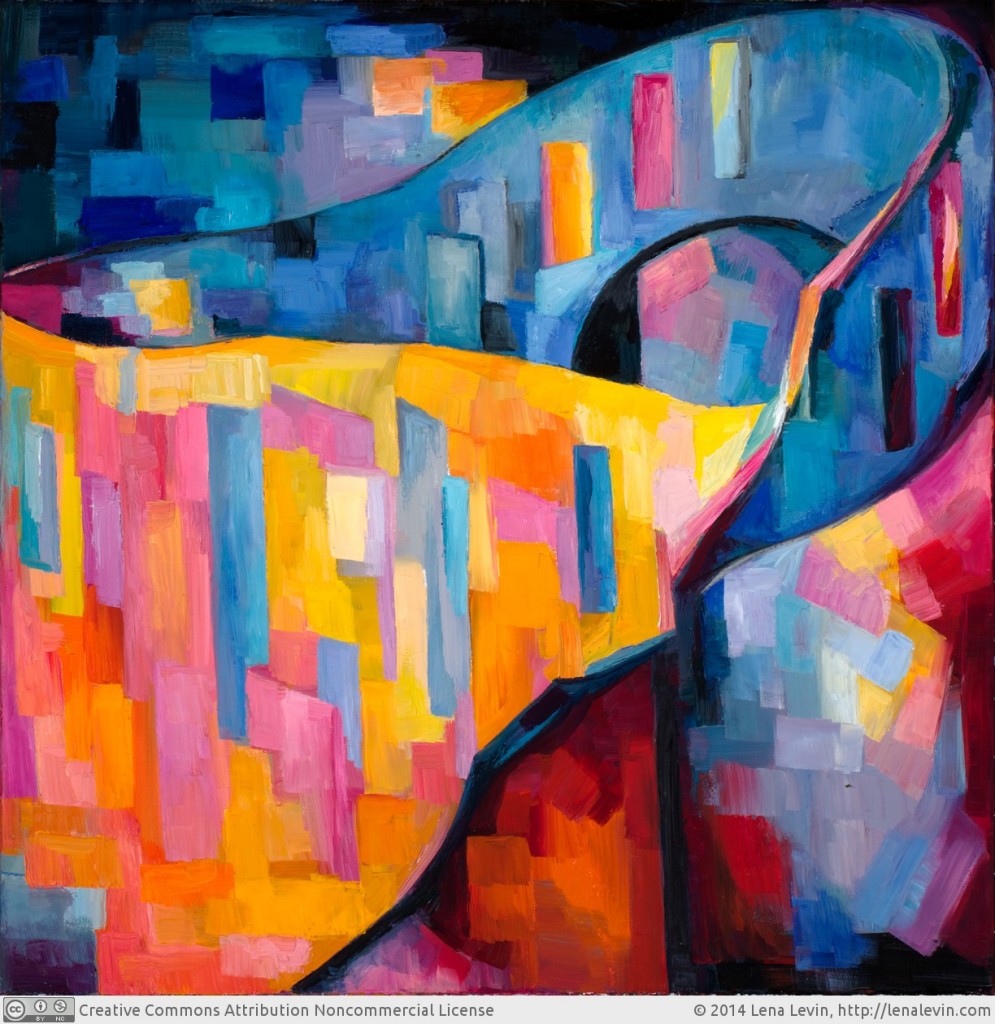Something strange happened to me several of days ago, somewhere between the winter solstice and the Christmas day.

It was a simple and brief iMessage exchange with a friend, but I suddenly noticed that we were about fifteen minutes apart in time. “My” timeline was at 8.49AM, and hers, at 9.03AM. My iPad (in its infinite digital wisdom) was reordering all our messages, so as to keep up with the timestamps, making the conversation look absurd, with answers seemingly occurring before the questions they were supposed to answer.
An eery experience, as though an opening sequence of a new episode of Dr. Who.
A rift in the fabric of time? Or just a software glitch? Or both? Or something else entirely?
I have no way of knowing. Come to think of it, does it matter? After all, it is this relentless, linear, digitalised time of iOS that measures the moments of my life, day to day, starting with the alarm clock in the morning. A glitch in this system is indistinguishable from a glitch in time.

If anything surprised me about this strange occurrence is that I was not surprised. This glitch was just a micro-manifestation of the strangeness of Time, which always intensifies during this time of year.
This season means different things for different people. For me, it has always been about Time.
The three signposts of the season — first the winter solstice, then Christmas, and then comes the New Year.
Ever since childhood, I perceived the lack of synchronisation between these signposts as one of the many illogical absurdities of the adult world. After all, Christmas evidently belongs to the ancient traditions of winter solstice festivities… and if the humanity decided to define the birth of Jesus Christ as the zero point of time, shouldn’t it also be the day when every New Year begins?
(For me, there has always been something absolutely fascinating about this very act of assigning “zero” to some random point within the ever-present rhythms of reality, thus making the whole of time before this point “go backwards”, and opening the Past into potential infinity.)

But the strange misalignment between the astronomical rhythm, the religious festivities, the social convention of calendar is what opens up this magical space between the winter solstice and the New Year’s Eve, as though time outside of Time, an invitation to step out of its flow, of its relentless digitalised linearity shaping our day-to-day lives.
Even my inbox is getting filled these days with advice on how to review the past year, and how to make the next one “my best year ever”. Time to look back, and time to look ahead, and the present moment ceases being just a fleeting digit on screen, to be replaced by the next one right now, and becomes the meeting point between the Past and the emerging Future.
One of the highlights of 2018 was the time I got to spend with Barbara Marx Hubbard — and one of her favourite themes is contemplating one’s life in the context of the whole story of this Universe, from the Big Bang and into the present moment, and then into the infinite emerging future. Between this, and the habitual swimming in the day-to-day, moment-to-moment river of time — there are all kinds of vistas and time scales, and it is ultimately up to us to choose the context for our lives, its past and future horizons.
One year? The individual life time? The birth of Jesus Christ? The emergence of homo sapience sapience? The Big Bang?
It is one of these cases where there is no “right” or “wrong” answer.
But the thing is, we do have the freedom to choose, and this choice determines what matters: how we define our successes and our failures, how we face our fears and our worries.
Actually, one doesn’t even have to choose… Perhaps the true freedom is in just playing with these temporal perspectives, and notice how it changes the whole picture.